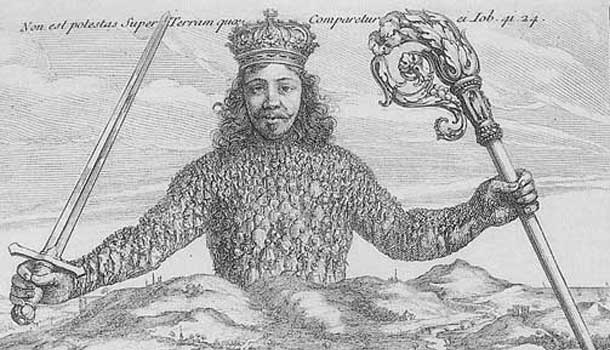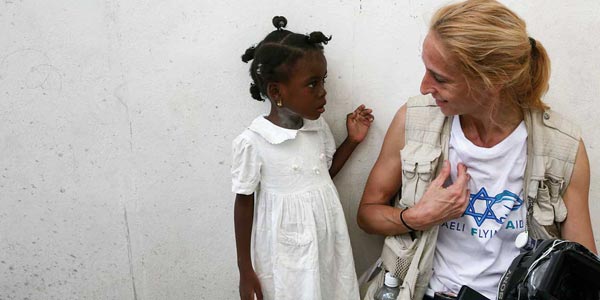
Leviathan 5
June 1, 2012
Healing in the Land of Voudou
June 9, 2012Those saddest words of all are explored from both sides in Lionel Shriver’s novel “The Post-Birthday World”. Our reviewer finds you can’t really escape what might have been.
I
It is human nature to wonder about the road not taken. Imagination forms part of the very essence of our species. It is one of the greatest delights and one of the greatest afflictions of the human condition.
In The Post-Birthday World, Lionel Shriver explores the eternal, unanswerable of what might have happened if…? She (for it is a she) writes a peculiar story about choices and their consequences. The format is simple and unique: early in the book, the story divides into two parallel universes where a different choice is made at a pivotal moment in the life of the main protagonist. Key events are mirrored in each universe to highlight the differences in outcomes, making this not so much a “butterfly effect” story as a deep, psychological exploration of the seemingly insignificant moments that comprise the patchwork of a human life.

Lionel Shriver
Irina is a beautiful Russian-American woman in her early forties. She lives in London with her dependable, highly intelligent, emotionally vulnerable, but rather passionless American boyfriend, Lawrence. Every year they take their friend Ramsey, a famous snooker player, out to dinner on his birthday. On one occasion, Lawrence is unable to attend, but encourages Irina – who is strangely disconcerted by the other man’s presence – to do so alone. At the end of the evening, Irina is presented with both the desire and the opportunity to kiss Ramsey. This is the crux, and the book splits at the end of this chapter.
 Book The post-birthday world by Lionel Shriver |
 Book Double Fault by Lionel Shriver |
Needless to say, Ramsey is the polar opposite of Lawrence – spontaneous, passionate, demonstrative, but flighty and immature. Shriver lays out the choice which has been plaguing women since the beginning: passion or stability? At some point in life, more or less everyone will have had to make this decision. There is rarely any resolution to the uncomfortable results of either outcome. If one chooses stability, there will always be the little voice that questions what might have happened if one had chosen otherwise. If one chooses passion, the compatibility between the new partners is uncertain, once the relationship passes beyond the immediate flare of attraction. In both cases, there will be a mental comparison to the alternative, an ever-present tally marking up the unaccountable. What was once a relationship becomes a constant game of numbers.
This authenticity is the strength of Shriver’s novel. With ruthless candour, she catalogues all the natural reactions of a woman who has had to make just such a decision. It would be easy to write a solid, popular book with half the acidity, making it much easier to stomach. But The Post-Birthday World is relentlessly realistic, right down to the little, unpleasant personality quirks of each of the characters. Shriver does not write to please. Hardly anybody in her books is an entirely likeable character, including Irina herself, which makes it difficult to establish a personal affinity with her. The over-analytical style is uncomfortable, whether in its familiarity for those who are similarly afflicted, or in its unfamiliarity for those who have little time for that sort of emotional nitpicking. And The Post-Birthday World, although it seems on the surface to be the perfect fantasy material, pervades the reader with the same sense of dissatisfaction that Irina feels as we oscillate between her two lives. This is not a chick-lit book: it is far too prickly for that.

Book We Need to Talk about Kevin by Lionel Shriver
Shriver is better known for her shocking book-now-film We Need To Talk About Kevin, a horrible yet fascinating exploration of motherhood without love and the creation of a Columbine-style murderer, with all the emotionally ravaging detail one might expect. Shriver follows a certain trend in her books, taking a long, clear-eyed look at the difficult questions which are often glossed over by less daring writers. Her insight into psychology is unsettling in its acuity, and she wields a sharp vocabulary with a beautifully neat turn of phrase. Unfortunately, these strengths are coupled with a tendency to overstress her characters with torments that cut a little too close to the bone. While it is true that novels do not have to be comfortable, there is a point when a book ceases to be enjoyable due to the relentless emotional battering. We Need To Talk About Kevin strays dangerously close to being guilty of this. Shriver’s earlier Double Fault, the story of the slow, inescapable destruction of a relationship between two tennis players due to the pathological competitiveness of one of them, falls squarely behind the base-line and becomes simply and straightforwardly depressing.

Scene from the film We Need To Talk About
This raises an interesting question. Are Shriver’s other books part of this trend of dismal realism? Does her writing fulfill some kind of need to re-experience these emotions? The sets of feelings explored in each book are not entirely dissimilar, and the styles are deeply introspective and highly analytical of the characters’ motivations. How much of the author’s own personality and desires are expressed – consciously or unconsciously – in her books? It’s an unanswerable question, based on purest speculation, except for the niggle in Shriver’s recent Guardian article (21/10/2011), where she gave her (positive) opinion of the film adaptation of We Need To Talk About Kevin. About a third of this review is devoted to the film and its success, while the other two-thirds starts like this: “For some weeks now, I’ve been tortured by a parallel shadow universe” and launches into a grisly account of what might have happened if the producers had ruined the film in the worst possible way. Clearly the idea of alternate realities is a particular favourite of hers, and the dark tone is a common factor in all four pieces of writing. Is the written word a safe place for Shriver to express the dark impulses innate to each of us? (That is not to say that Shriver’s writing is all the same. Her column in the Guardian is informed, thought-provoking, and accomplished journalism.) It seems not entirely dissimilar to the savage glee with which one writes an abusive email to one’s boss, saves it in the Drafts folder, and then starts again in the morning. Fun, exciting, satisfying, and ultimately cathartic – just as The Post-Birthday World is, in the end.

Scene from the film We Need To Talk About
The ancient Greeks used to watch tragedies (and later, comedies) performed in the theatre during the Dionysia festival in Athens. The purpose was manifold: ritual, recreational, social, and emotionally cathartic. Aristotle wrote of catharsis as being an essential component of tragic theatre, and suggested that a good tragedy would make people experience the emotions for themselves in a controlled environment, presumably enabling them to lead better, healthier lives. (Plato proposed something similar, though if he had had his way, there would be no room in society for theatre, poetry, or fiction, and I would not be writing this article.) Certainly we sometimes go to see films with a similar intention: we watch horror films to experience the fear and then the release at the end when we remember that it was not real. We watch sad films to cry, venting emotion that may not necessarily find an outlet in day-to-day life. While the Greeks did not have novels in the same way that we do today (partly because of the laborious and time-consuming process of copying them by hand), we often use books to a similar purpose: to laugh, to cry, to identify with the characters and experience their emotions – who did not shed a tear at the end of The Time Traveller’s Wife? It would not be unreasonable, then, to imagine that the act of writing the book might trigger a more complex version of the same effect.

Scene from the film We Need To Talk About
In this sense, the structure of The Post-Birthday World proves to be a strength. The parallel universes allow the writer (and the reader, naturally) to explore not one but two sets of emotions, and the interplay between the two sides creates a further third layer of experience – making the book almost literally more than the sum of its parts. It is not that events in each universe influence each other; rather, the third layer is created purely in the experience of the reader as one appreciates the similarities and differences between the two timelines.
The double-reality format gives the reader a deeper understanding of Irina, who is thrust into two experiments in the same novel. We witness not one but two outcomes, a rare and privileged position. The events that follow her fateful decision are forced through the filter of Irina’s perceptions and prejudices. One could easily become irritated by the sheer humanity of Irina’s responses. While the novel is written in the third person, the self-analysis shows clearly Irina’s own thought processes, making the reader a curious hybrid of external and internal observer. Would the novel perhaps be more accessible if written at a slightly larger distance from Irina? My instinct would be to say no. We can see ourselves in this relentless churn of self-awareness, and that is what makes this story so striking. In a way, what Irina actually does is irrelevant. It is the nature of the choice, the agonising and self-doubt, and the way in which her thoughts and feelings change.
In true human fashion, Irina’s mind elides the dissatisfactions she might have experienced with the absent partner, and magnifies the defects of the one she is with – even more so in the universe where she remains with her partner and eschews infidelity. This reaction seems irrational and completely consistent with human behaviour. We always idealise the road-not-taken and devalue what we already have. It is the nature of desire. People regret things that they have not done more than they regret things that they have done. In spite of this, Irina’s dissatisfaction is not entirely the product of fantasy. Lawrence treats her a great deal worse than Ramsey does in the other universe, which smacks of tweaking the character in order to fit the structure of the story. The “punch-line” of the novel – Lawrence’s infidelity in the world in which Irina was faithful – seems like an authorial sleight of hand. We fume through the chapters of that universe, outraged by Lawrence’s increasingly cavalier and loveless attitude with a kind of savage enjoyment at such a clear object for our annoyance. But then why make Lawrence so pleasant in the other world? This inconsistency is the only fault I can find with an enjoyable, frustrating, passionate story. I am perfectly willing to accept it for the sake of its beautiful symmetry.
We see a microcosmic version of this balance in Shriver’s written style. Complex thoughts are encapsulated, not glibly but with elegance. The prose is fluid and well-paced, with much explanation, but without feeling heavy or overwrought. Shriver writes clearly, and with an unfettered emotional honesty. Her well-crafted sentences make the shames of mundane infidelity, the joys of forbidden love, and the raptures of a tempestuous marriage to leap fully formed into the imagination. By itself, the story is not quite rich enough to fill a novel, regardless of how clever the format or well-formed the characters. It is the language which turns this simple concept into a thing of beauty, and draws us from page to page.
There is no question what the message of the book is, which is mirrored in a minor key by a clever play-within-a-play children’s story, written by Irina herself. At the end of the novel, it is clear which universe is the “right” one. Ultimately, for all the dissatisfactions in each world, for all the doubts and frustrations, this is a story about opportunities, about choices. It tells us that while we can never know for sure which is the right course of action, we must choose, for better or for worse. It’s not all the same which universe of possibilities becomes the reality. Tragedy may or may not strike at any moment, and stagnation is death. Live. Be bold.




